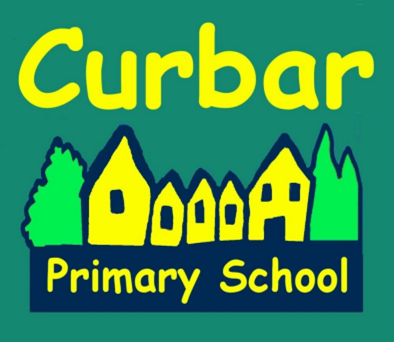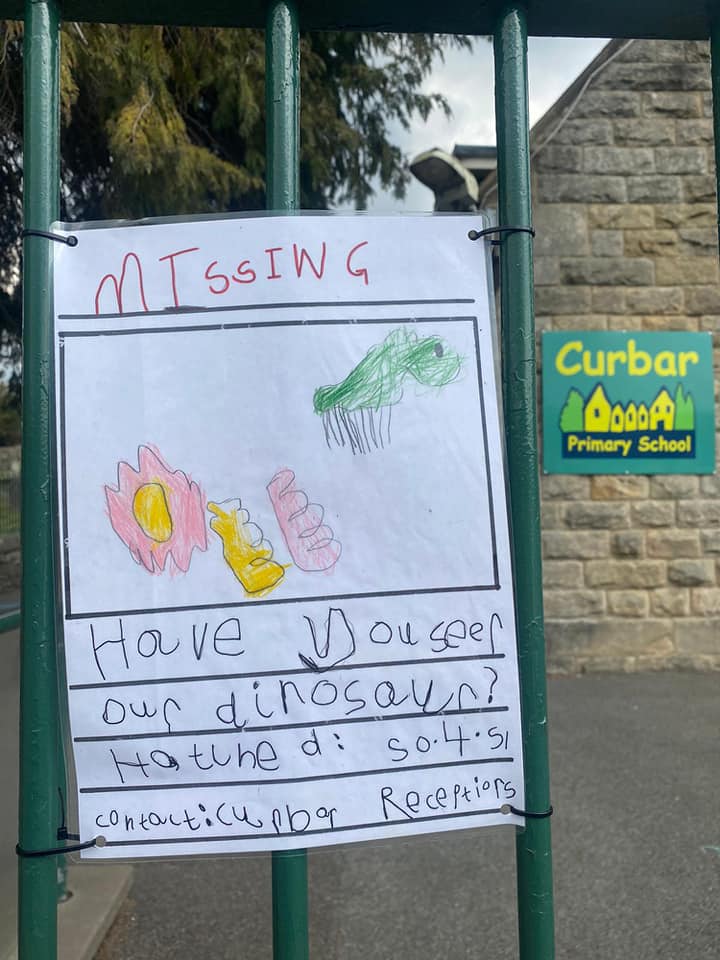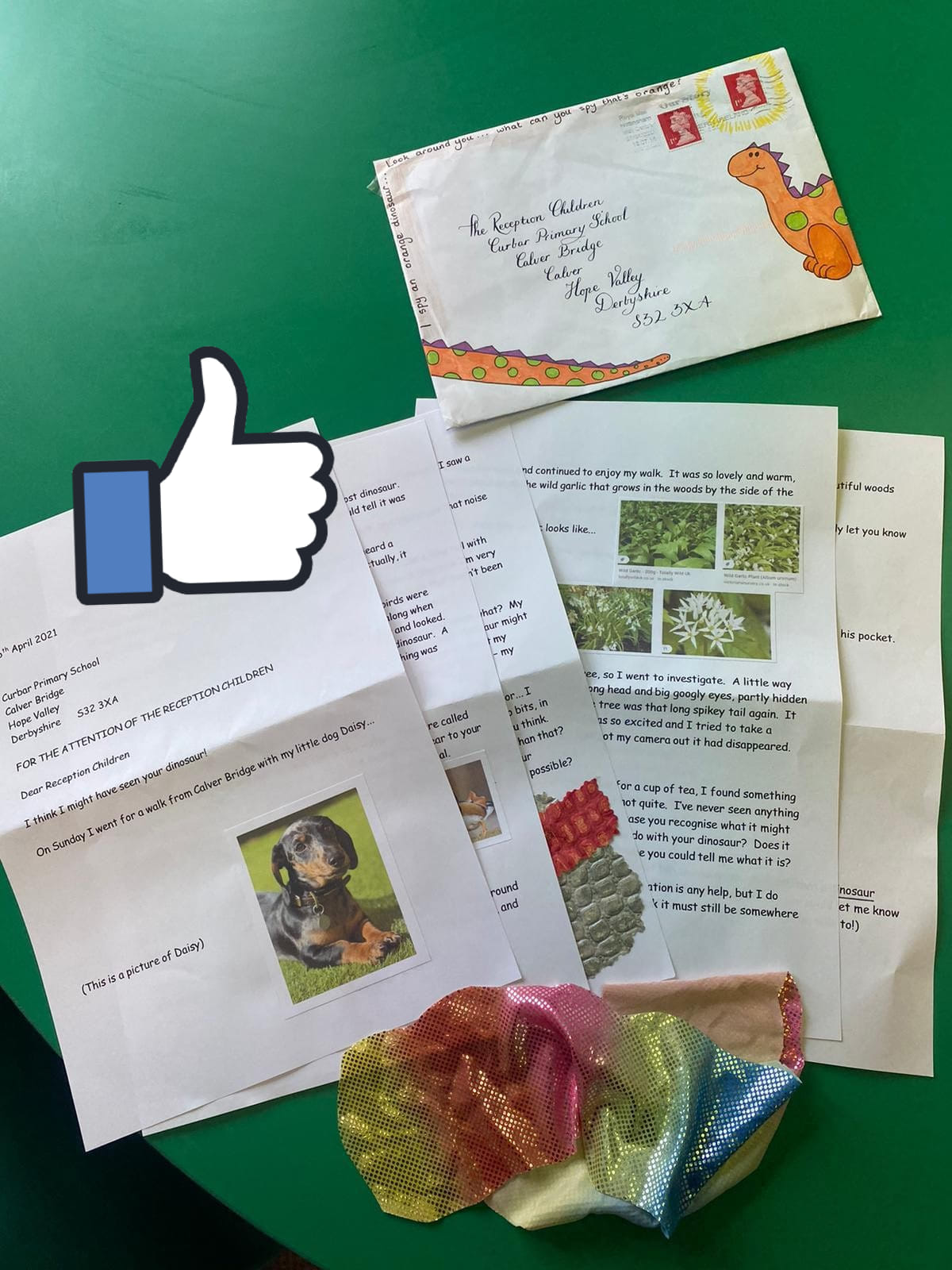Writing
At Curbar Primary School, we aim for our children to leave the school able to communicate effectively in writing – and enjoy being able to express themselves in this way. We have undertaken a multifaceted approach to writing, whereby many subject areas include the opportunity for pupils to express their thoughts in a range of written styles and contexts. Through our teaching sequence for writing (see below) we: immerse our children in a genre of writing; analyse and identify the skills necessary to be successful; teach the skills (often linked to grammar and punctuation); draft and improve our writing. We write for a purpose. For example, if we are writing about an important issue we might choose to write to our MP (she replied – see below).
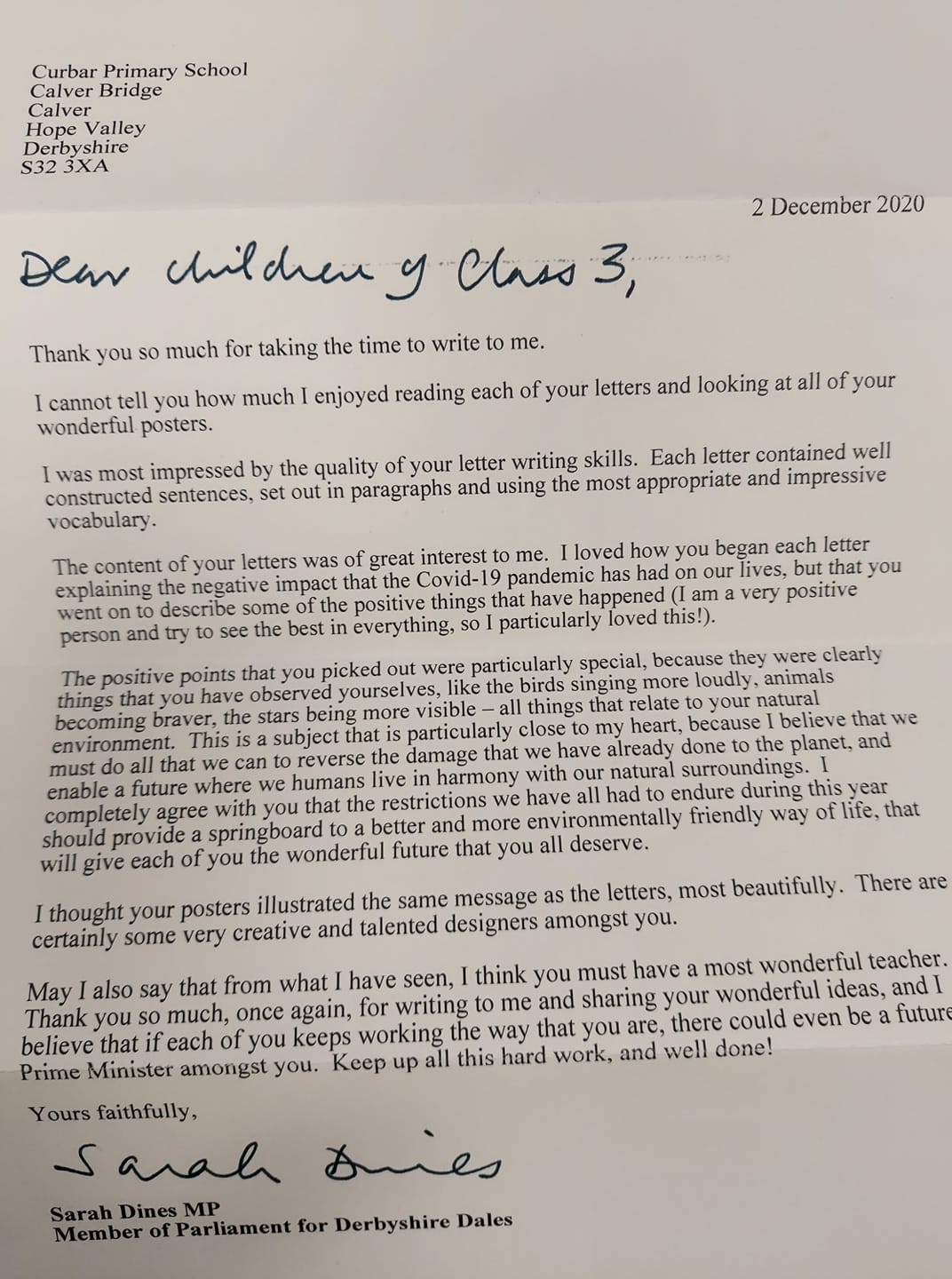
Or we consider our audience and put up our missing dinosaur posters around the village (lots of people replied!)
|
|
|
|
It is important that our children are exposed to a range of exemplar texts, from across different genres, different cultures and different themes, to embed ambitious vocabulary choices and secure expectations of writing across the curriculum. Handwriting and spelling is also taught regularly across school to enable the children to become fluent and legible writers who have developed a proficient level of spelling.
The teaching sequence for writing
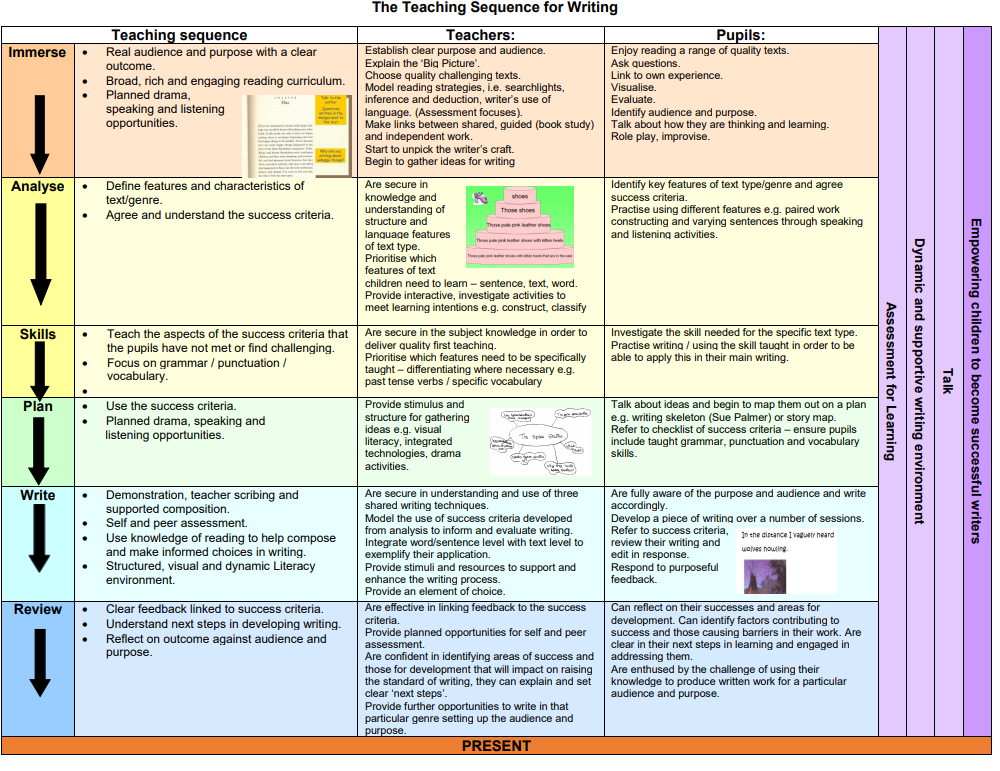
Progression in Fiction Writing at Curbar Primary School (2-year cycle)
Reception
- Fables
- Fantasy
- Classic literature
- Stories by the same author/themes
- Stories from other cultures
- Stories that raise issues
- Traditional/Fairy tales
Years 1 and 2:
- Fables
- Fantasy
- Classic literature
- Stories by the same author/themes
- Stories from other cultures
- Stories that raise issues
- Traditional/Fairy tales
- Stories with familiar settings
- Adventure
- Humour
Years 3 and 4:
- Fables
- Fantasy
- Classic literature
- Stories by the same author/themes
- Stories from other cultures
- Stories that raise issues
- Twisted Traditional/Fairy tales
- Adventure and mystery
- Humour
- Historical stories
- Myths and Legends
Years 5 and 6:
- Fables
- Fantasy
- Classic literature
- Stories by the same author/themes
- Stories from other cultures
- Stories that raise issues
- Traditional/Fairy tales
- Adventure and mystery
- Humour
- Historical stories
- Myths and Legends
- Flashbacks
Progression in Non-Fiction Writing at Curbar Primary School (2-year cycle)
Reception:
- Poetry
- Information
- Letter
- Recount
- Instruction
- Non-chronological report
Years 1 and 2:
- Poetry
- Information
- Letter
- Recount/diaries
- Instruction
- Non-chronological report
- Journalistic (Newspaper)
Years 3 and 4:
- Poetry (Performance)
- Information
- Letter
- Recount/diaries
- Instruction
- Non-chronological report
- Journalistic (Newspaper)
- Explanation
- Persuasion
- Biography
- Discussion
Years 5 and 6:
- Poetry (Performance)
- Information
- Letter
- Recount/diaries
- Instruction
- Non-chronological report
- Journalistic (Newspaper)
- Explanation
- Persuasion
- Biography and auto biography
- Discussion
- Playscripts
- Discussion/Debate
Please see the school’s long term plan over our two year cycle:
